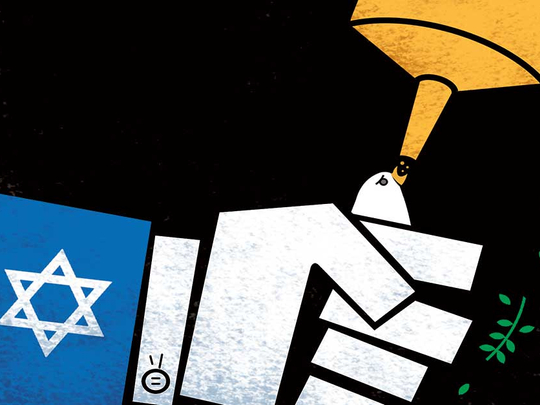
Israel’s force-feeding bill currently going through the Knesset is the most pernicious and scathing piece of legislation that may have been put on the country’s legislative books so far. It’s not something to be proud about. It had its first reading in the Israeli parliament last week, with two more expected rowdy sessions.
When it becomes law — and many are expecting it to become so in record time, despite the fact that only 53 voted for and 50 opposed in Israel’s political system of coalitions — it will be seen as by far the most violent attack on human rights by the Israeli government so far. Force-feeding is widely viewed as a form of torture, it’s unethical, immoral and inhumane and an insane act, as the Israeli Medical Association described it.
Because of this implication, the force-feeding bill has created much uproar in Israel with the Public Committee Against Torture in Israel and the Association for Civil Rights in Israel wholeheartedly attacking the bill as lacking compassion, and that it gives a godless procedure a carte blanche to dissect the intestines of humans with a person stretched out strapped to a chair with a feeding tube shoved down his throat.
Administering force-feeding is dangerous and could lead to instant death, especially if the tube goes wrongly into the windpipe. It has been condemned by the Israeli Medical Association, the American Medical Association, the British Medical Association, the World Medical Association and the International Red Cross, as well as many others but to no avail. A sick joke can now be made that a geese is worth a 100 Palestinian lives or more. This is in reference to the fact that the Knesset previously passed a law preventing the force-feeding of geese to produce liver pate as cruelty to animals. How about cruelty to human beings?
The Israeli government, no doubt coaxed by its intelligence services like the Shin Bet, is unwilling to acknowledge the dangers of force-feeding. It is shorted-sighted, parochial and ignores reason and prefers the stick and the bloody dagger, taking its cue no doubt from the force-feeding episodes carried out in the Abu Ghraib prison when American troops occupied Iraq from 2003 up until 2011 and/or in Guantanamo Bay. These experiences may be giving Israeli politicians the high tempo to turn a blind eye to the law, international conventions and basic human decency.
Inevitable heat
While Israel may not yet be feeling the heat, its pro-force-feeding politicians, and the rest of the country for that matter, are likely to do so when the bill is passed into law, the procedure starts to be administered and Palestinian hunger strikers start falling one by one, unfortunately.
Israel would then be forced to at least look up, take notice, and comprehend the bestial nature of this practice condemned internationally as torture. Already politicians who are opposed are openly saying this is the last thing Israel needs and it would be a devastating international public relations exercise in front of the international community.
Palestinian hunger-strikers are now taking to this extreme form of action to protest their never-ending administrative detention. According to the Israeli human rights organisation, Btselem, there were just under 400 Palestinians in prison on administrative detention as of mid-March this year. These detentions are routinely renewed every six months without a right to due process and some Palestinians have been in prison for years without being formally charged. The head of the Israel Medical Association Leonid Edelman said there have been over 1000 Palestinian prisoners who have been on hunger strike over the last two years protesting their conditions.
In addition, there are over 7,000 Palestinian held in Israeli jails and many of these it is feared would actually go on hunger strike in support of their colleagues if force-feeding starts being administered. This needs to be a long-term concern of Israel because it will be faced with a mass protest.
Qadoura Faris, a Palestinian who had been hunger-strike before and now president of the Palestinian Prisoners’ Society, cynically says more Palestinian prisoners would just go on strike to embarrass Israel and there aren’t enough Israeli doctors to push tubes down the throats of striking Palestinians.
However, and for the time being, the Israeli government is sugar-coating the whole force-feeding procedure. Unlike its former bill introduced last year and stopped in its tracks because Israel had other pressing issues like invading Gaza militarily, the new draft doesn’t require doctors to do the procedure.
However, a doctor must examine the hunger-striker to determine whether he is near death and communicate that with the prison director, who may approach a court judge to sanction force-feeding to be carried out by prison officers.
It seems that both Israel and its Palestinian hunger strikers are in for a long haul of ghastly recriminations. Of course Israel can just end the headache it’s preparing for itself and Palestinian prisoners and their families. It can simply stop administrative detention.
Marwan Asmar is a commentator based in Amman. He has long worked in journalism and has a PhD in Political Science from Leeds University in the United Kingdom.









